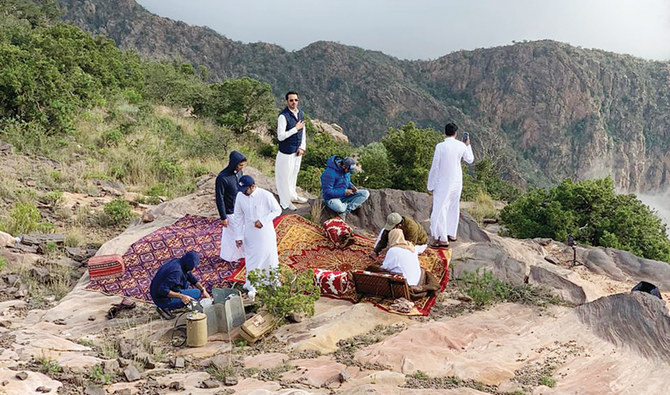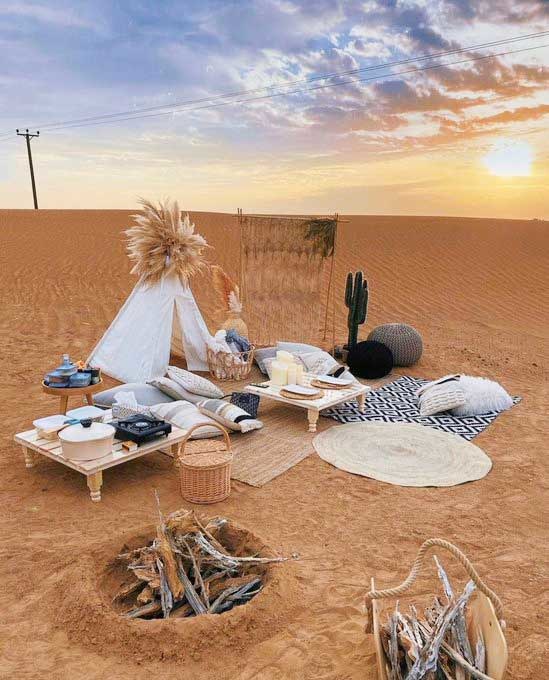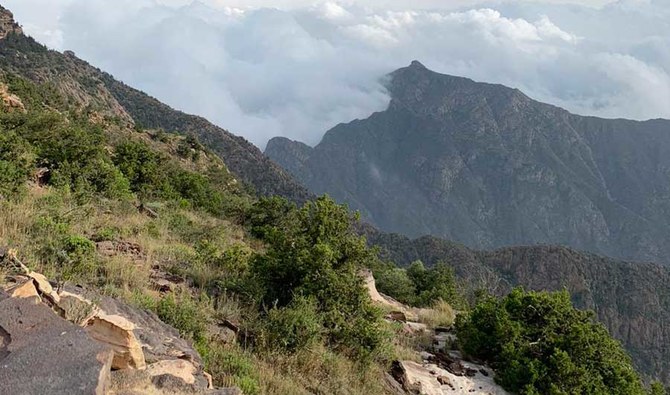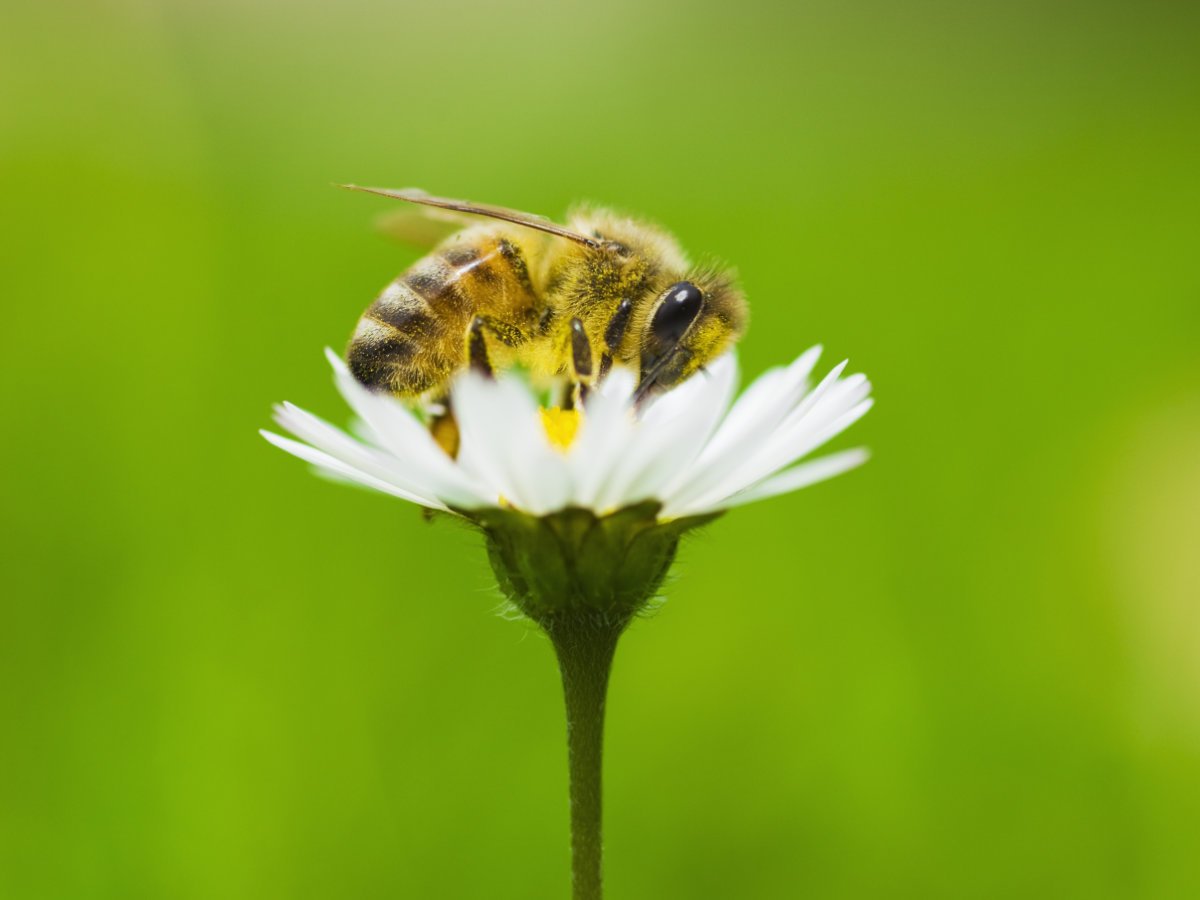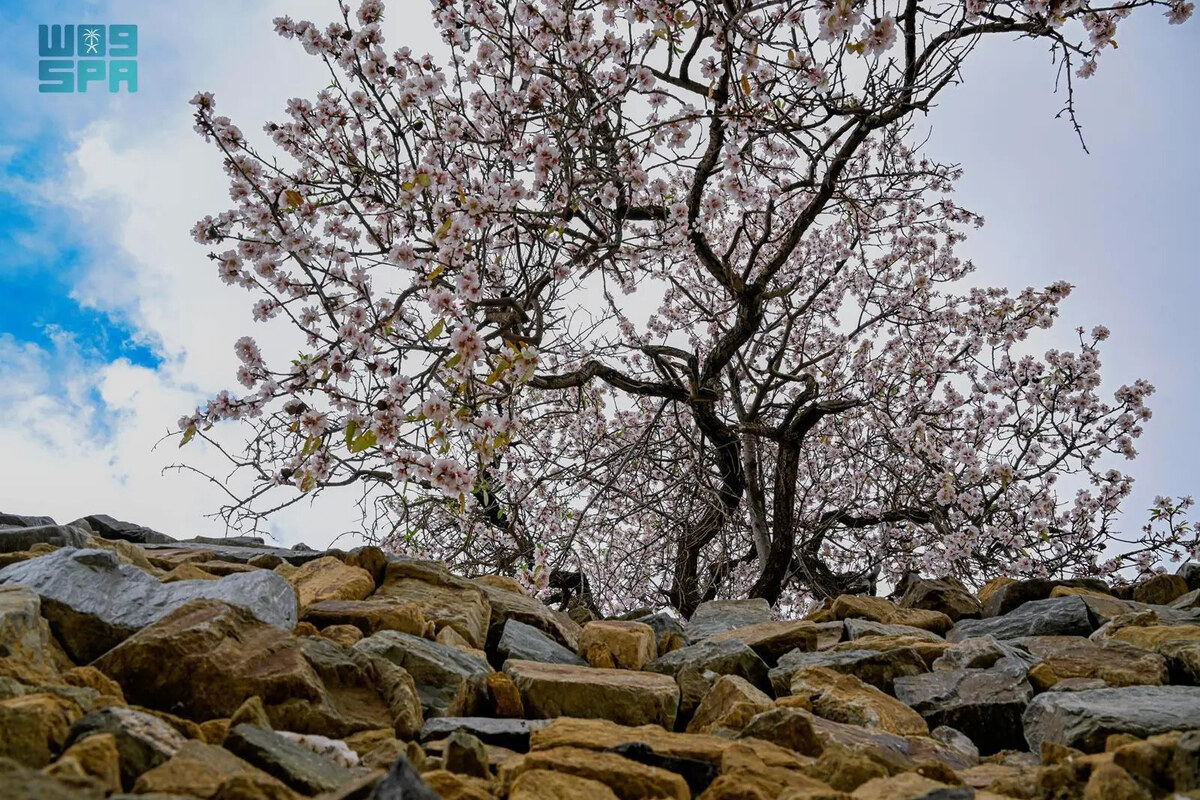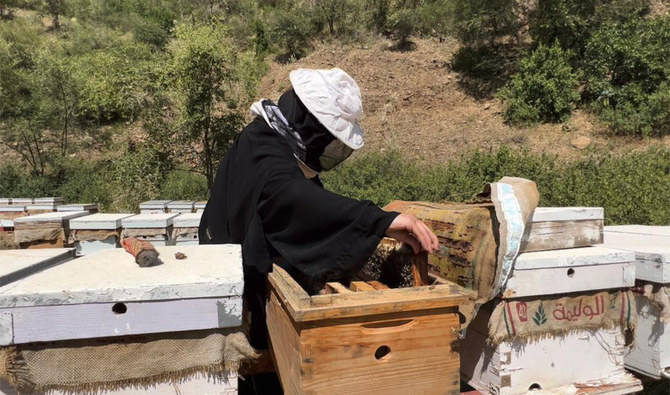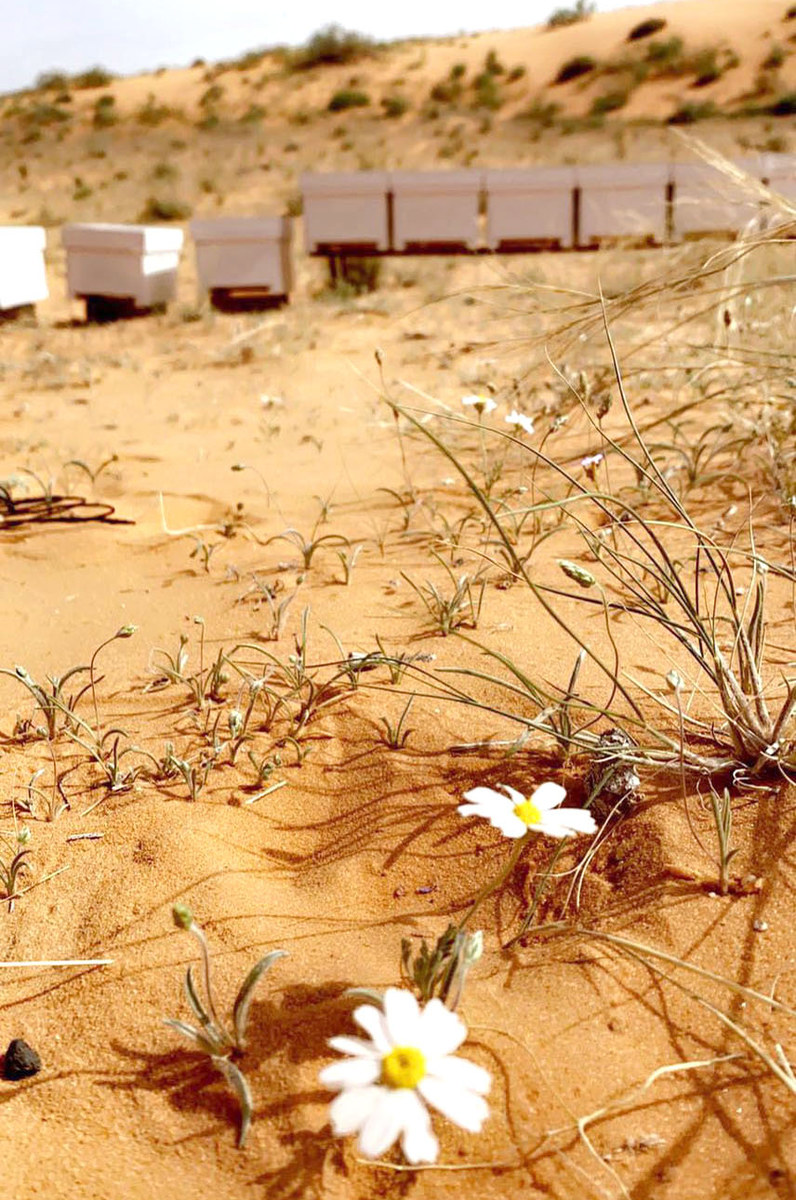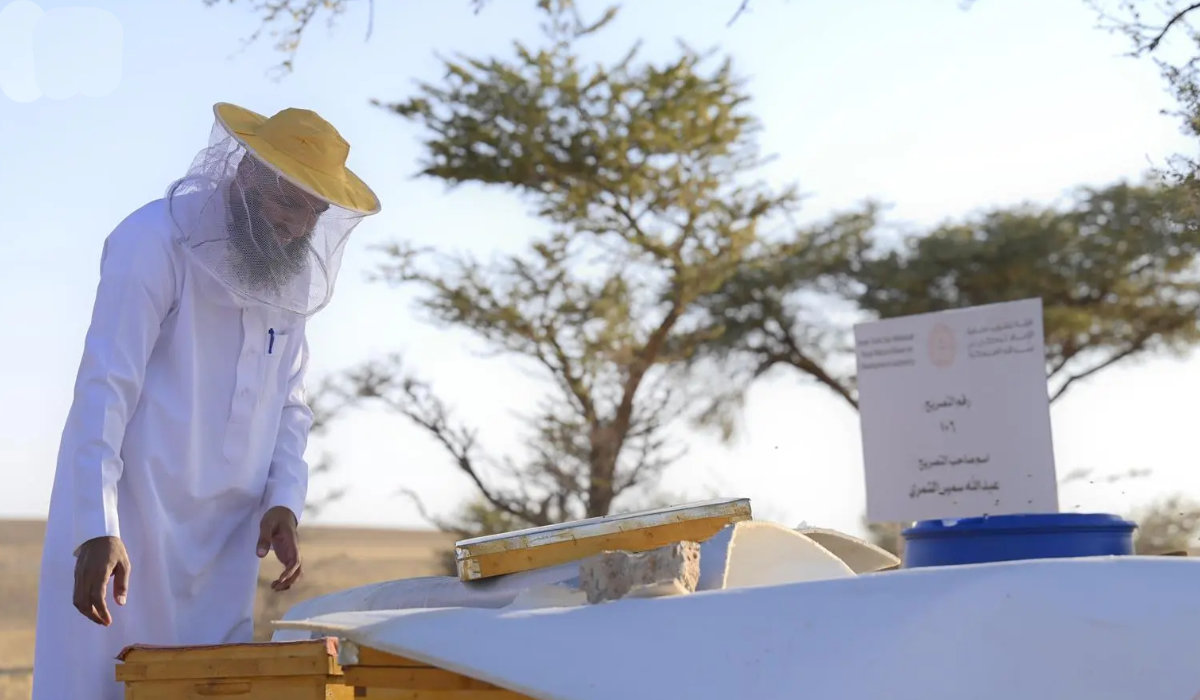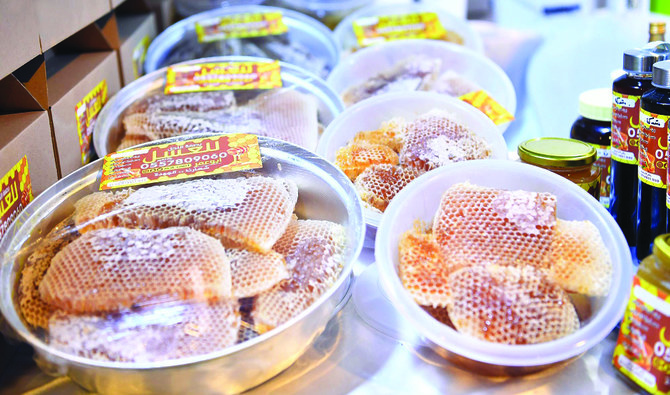RIYADH: As winter settles across the Kingdom, and with the mid-year school break in full swing, the time is ripe to break out the camping gear and head to the desert for a good old-fashioned “kashta.”
One of the most popular winter activities, kashta — the local name for camping — is also a great way for people to get out of the house and enjoy COVID-19-free activities. In the fresh air, safely distanced from the crowds of the city, both single- and multiple-day trips are a well-loved tradition that people in the Kingdom have enjoyed for decades.
In light of camper numbers peaking in the winter, Saudi Civil Defense has outlined a number of safety requirements to follow to avoid danger and accidents.
Abdullah Al-Saadan, known on social media as Abu Sattam, has more than 20,000 followers on both Snapchat and Instagram. The avid camper told Arab News how important it was for campers to follow safety guidelines.
“A proper kashta can be done pretty much anywhere, whether it’s in a national park, or way out of the city in the wilderness. But the most important thing to remember is to be safe while you’re doing it,” he said.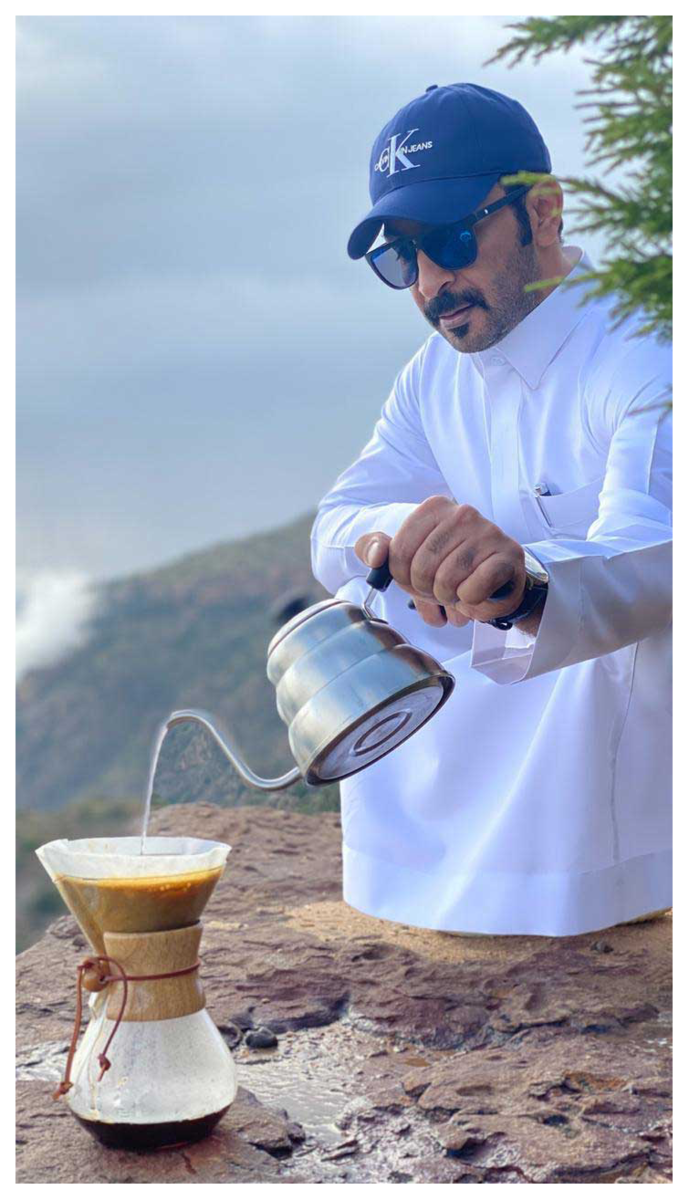
According to both Al-Saadan and the Civil Defense, the key thing to keep in mind while camping is to be safe about lighting fires.
“You must never light a fire directly on the ground. Always use a brazier or a portable grill, or at the very least put down some foil on the ground,” said Al-Saadan, adding that this is “not only for safety, but also to avoid damaging the natural beauty of the campsite.”
The Civil Defense emphasized the need to bring fire extinguishers for those planning to grill food or light bonfires for warmth. The recommendation is one fire extinguisher per tent, to ensure a quicker response in case of an outbreak.
The Civil Defense also urged campers to keep family members remaining in the city informed of their location, and to camp away from valleys and select higher ground to set up on.
“The further out of the city you go, the less likely you are to encounter anyone else, but for those who want to stay closer to the city, there are locations like Al-Ammariyah or Al-Nufud Al-Kabir,” said Al-Saadan.
HIGHLIGHT
The Civil Defense emphasized the need to bring fire extinguishers for those planning to grill food or light bonfires for warmth. The recommendation is one fire extinguisher per tent, to ensure a quicker response in case of an outbreak.
He said that camping in the Najd (Central) province was bound to be safer than in other areas, such as in the southern province, as campers were unlikely to encounter wild animals, scorpions or venomous snakes.
For campers using electrical items such as heaters or air-conditioners, extra care should be taken when setting up camp. Cables should be passed through pipes to protect the wires from being cut accidentally or disrupted by rainwater. Automatic circuit breakers should be evenly distributed and allocated for each device that consumes significant electrical energy.
Lamps, when in use, should be kept away from fabrics and other materials that make up the tents. A free space should be maintained between weeds and flammable materials at a distance of not less than 3 meters.
Campers also need to ensure good ventilation for sites containing wood or charcoal stoves, to avoid the danger posed by deadly carbon monoxide gas. Fires should always be extinguished after use.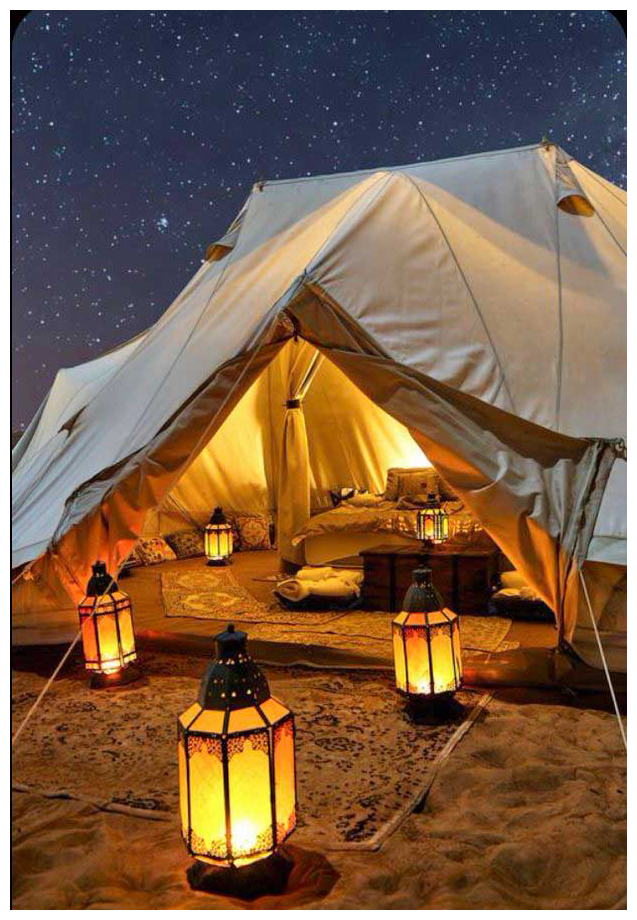
Campers are also advised to ensure the area surrounding their camps does not contain exposed or neglected wells, and to report their locations immediately if found in order for the Civil Defense to take action.
Finally, Al-Saadan said that anyone intending to camp in the Kingdom, regardless of where they pitch their tents, should always leave the campsite exactly as they found it, and if they could, in an even better condition.
“Anyone intending to camp should make sure they have ways to dispose of their garbage. Plastic plates and empty water bottles do so much damage to the environment and don’t decompose naturally,” he said. “Sometimes, they even end up being eaten by wild animals, which might even result in their deaths. The most important thing I tell my followers on social media is to clean up after themselves, so anyone that comes after them can enjoy the campsite too.”
Al-Saadan shares daily tips, safety guidelines and pictures of campsites on Snapchat and Instagram.


